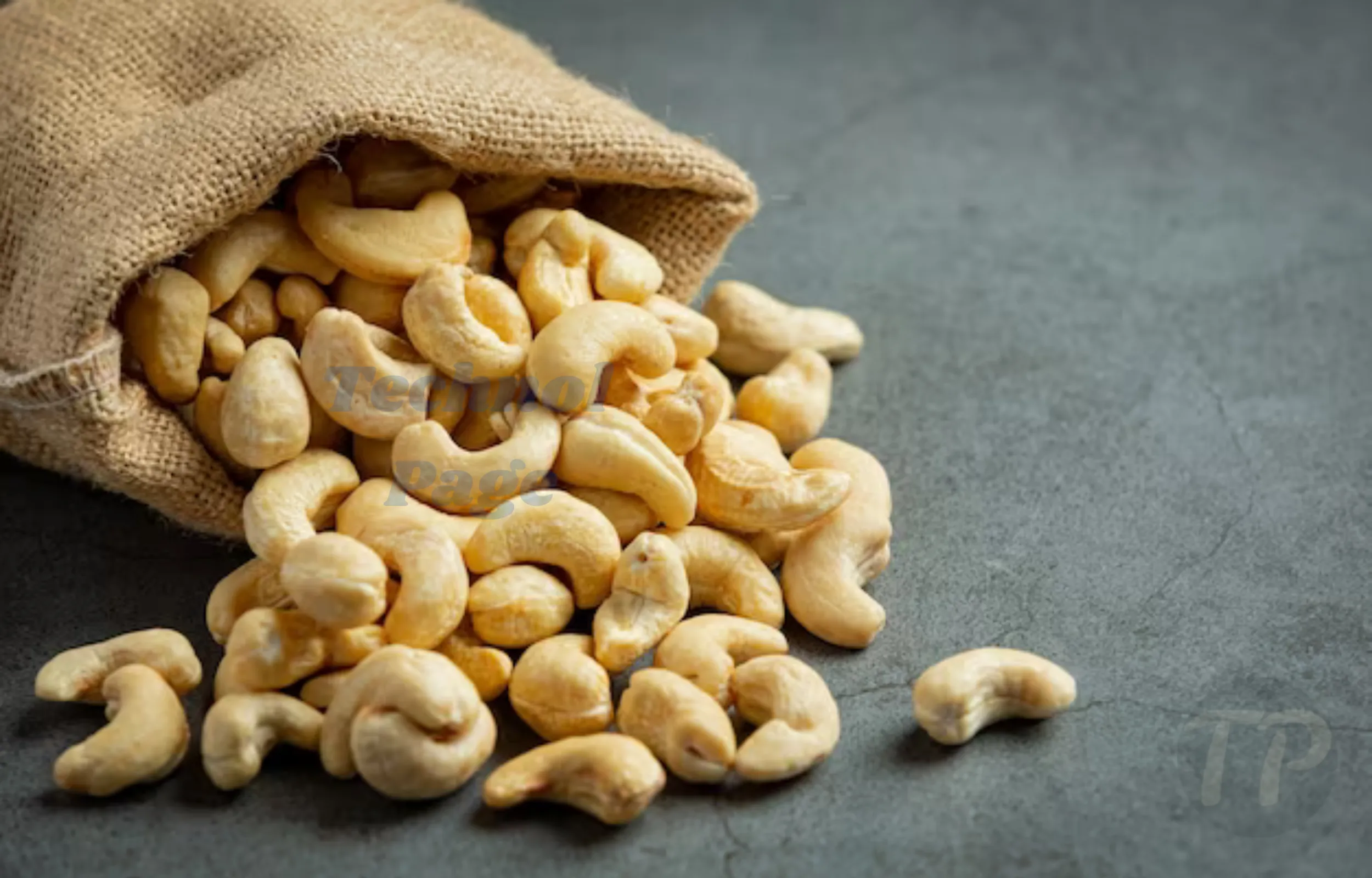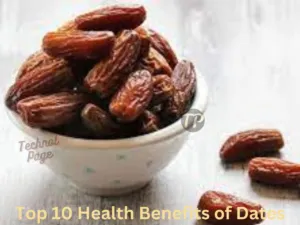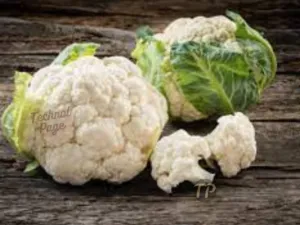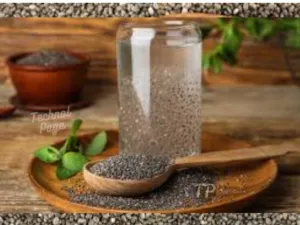Table of Contents
Cashew Benefits , Side Effects and Uses
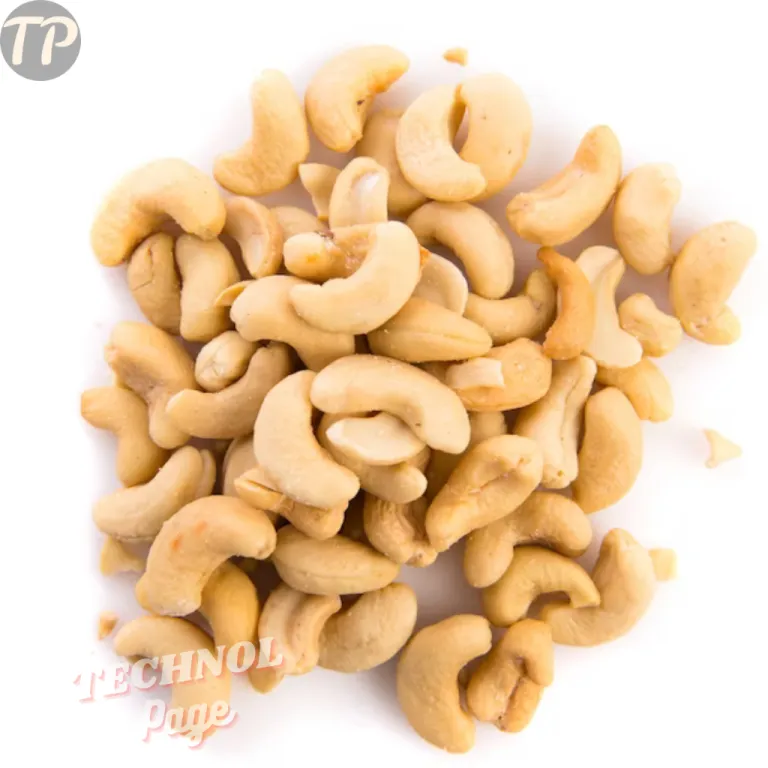
Introduction
Cashew nuts are seeds rather than nuts. Anacardium occidentale is the scientific name for cashew, which belongs to the Anacardiaceae family. It is a popular ingredient in many Indian dishes as well as dairy substitutes such as cream and cashew milk. These have a rich dry fruit flavour. Only 26 cashew varieties are commercially available, despite the fact that 30 to 33 varieties have been identified. The W-180 variety is known as the “King of Cashew”. Cashews are high in tocopherols, phytosterols, phenolic lipids, and a variety of bioactive compounds, all of which have numerous health benefits. Let us learn some more interesting facts about cashew in this Technol Page article.
In this we will tell you about the side effects, benefits of eating cashew nuts and how to use it, so let’s start.
Cashew Benefits
Cashew is very beneficial for our health, we can consume it in many diseases, about which it is explained further in this article of Technol Page.
1). Benefits of Cashews for Eyes
Zeaxanthin, an antioxidant found in cashews, is known to shield the macula of the eyes from harm and enhance vision. This implies that consuming cashews may aid in enhancing vision.
2). Cashews for Brain Health
Cashews contain good amount of magnesium. Magnesium helps in blood flow to the brain and can also play an important role in healing brain injury. Additionally, magnesium has antidepressant properties, which can help relieve depression. Thus, the magnesium present in cashew nuts can also be beneficial for brain health.
3). Cashews for Bone Health
Cashews are a good source of calcium and magnesium. Both the building and strengthening of bones are aided by calcium and magnesium. Cashews contain magnesium, which can aid in the prevention of conditions like osteoporosis. This disease makes bones brittle and feeble.
4). Benefits of Cashew Nuts in Cancer
Proanthocyanidins, a flavonoid linked to the replication of cancer cells, are abundant in cashews. Furthermore, cashews’ copper and other mineral content may help lower the risk of colon cancer. This suggests that consuming cashews may aid in the fight against cancer.
5). Benefits of Cashews for Increasing Hemoglobin in Blood
The protein called haemoglobin helps red blood cells carry oxygen. Two micronutrients that are necessary for the production of haemoglobin are iron and copper. Due to their high iron and copper content, cashews can aid in the production of haemoglobin. Eating cashews can also aid in the management of blood disorders.
6). Benefits of Cashew Nuts in Diabetes
Magnesium is one of the many nutrients found in cashews. It may help stabilize blood sugar levels. Blood sugar levels can be stabilized to help manage diabetes. Therefore, you can consume cashew nuts if you have diabetes. Before consuming cashews, please consult your doctor regarding the quantity of cashews.
7). Other Cashew Benefits
Cashews are a good source of unsaturated fats, as well as important minerals like iron, copper, magnesium, zinc, and B, E, and K vitamins. Consuming nuts like cashews can lower blood pressure and cholesterol, which can significantly lower the risk of heart disease, according to certain studies. In addition, a number of vitamins and minerals found in cashews, including potassium, vitamin E, vitamin B6, and folic acid, can significantly lower the risk of contracting hard diseases.
Cashew Benefits Many more qualities are found in it, some of which we have mentioned below.
1]. Antioxidant qualities.
2]. These might have the ability to reduce inflammation.
3]. They can lessen discomfort.
4]. They might also possess anti-diabetic qualities.
5]. It might act as an anticancer agent.
6]. They might protect the heart.
7]. Additionally, they might be antimicrobial.
8). Cashew keeps Blood Healthy
Iron and copper are found in good quantity in cashew nuts. Healthy red blood cells, which help deliver oxygen to the body, are boosted by iron. Because iron promotes the formation of red blood cells, it may also aid in the prevention of blood disorders such as anemia. We can consume cashew nuts to keep our blood good with the advice of our doctor.
Uses of Cashew Nuts
It would be best if you soaked cashew nuts in water before eating them if you enjoy eating cashew nuts. Let it soak all night, then eat it in the morning. Consume it by mixing it into a dessert. Eat it sparingly in the summer because of its hot nature. Cashew nuts should not be combined with alcohol. This could result in elevated cholesterol levels.
We can use cashew nuts in many ways in our daily life, some of the methods are mentioned below.
1}. Cashews can be eaten raw whenever you’d like.
2}. As a snack, roast cashews and almonds together, season with salt, and enjoy.
3}. You can top kheer and halwa with cashews.
4}. Additionally, it can be used to prepare some kinds of vegetables.
Who Should Avoid Cashews
Not every individual will benefit from cashew nuts in terms of health. It might also be detrimental to certain individuals. You need to speak with your doctor about this.
Side Effects of Cashew Nuts
1}. It’s possible that some people have an allergy to cashew nuts; in this case, it would be best to avoid them.
2}. Cashews are a good source of dietary fibre.
3}. Fibre helps to keep the stomach clean. For this reason, people who have diarrhoea shouldn’t consume cashew nuts.
4}. It contains high amount of calories and fat, hence consuming it in large quantities increases the risk of weight gain.
5}. Overindulging in cashews may lead to weight gain. In addition, issues like bloating, headaches, allergies, itching, vomiting, nausea, and stomachaches can also arise.
6}. Cashew nuts contain sodium. An overabundance of cashew nuts can raise sodium levels in the body, which can cause high blood pressure, stroke, and heart-related conditions. Kidneys may also be impacted.
Cashews Nutritional Value
| Nutrients | Nutritional value per 100 grams (approx) | |
| Water | 5.20 grams | |
| calories | 553 calories | |
| carbohydrate | 30.19 grams | |
| fat | 43.85 grams | |
| protein | 18.22 grams | |
| Sugar | 5.91 grams | |
| fiber | 3.3 grams | |
| VITAMINS | ||
|---|---|---|
| vitamin C | 0.5 mg | |
| niacin | 1.062 mg | |
| riboflavin | 0.058 mg | |
| thiamine | 0.423 mg | |
| folate | 25 µg | |
| Vitamin A | 0 iu | |
| Vitamin E | 0.90 mg | |
| Vitamin B6 | 0.417 mg | |
| vitamin k | 34.1 µg | |
| ELECTROLYTE | ||
| sodium | 12 mg | |
| potassium | 660 mg | |
| MINERAL | ||
| Calcium | 37 mg | |
| iron | 6.68 mg | |
| magnesium | 292 mg | |
| phosphorus | 593 mg | |
| zinc | 5.78 mg | |
| LIPID | ||
| Fatty Acids [Total Saturated] | 7.783 grams | |
| fatty acids [total monounsaturated] | 23.797 grams | |
| Fatty acids [total polyunsaturated] | 7.845 grams | |
Disclaimer:-
The suggestions given in the article are for general information only and should not be taken as professional medical advice. Consult your doctor if you have any questions or concerns.
You have read this blog completely and with great attention ,This is our sentiment. If you have any questions regarding the content of our website, you can contact us.
Please visit us :- To know more about our website, please visit our About Us and Disclaimer page.
Thanks
